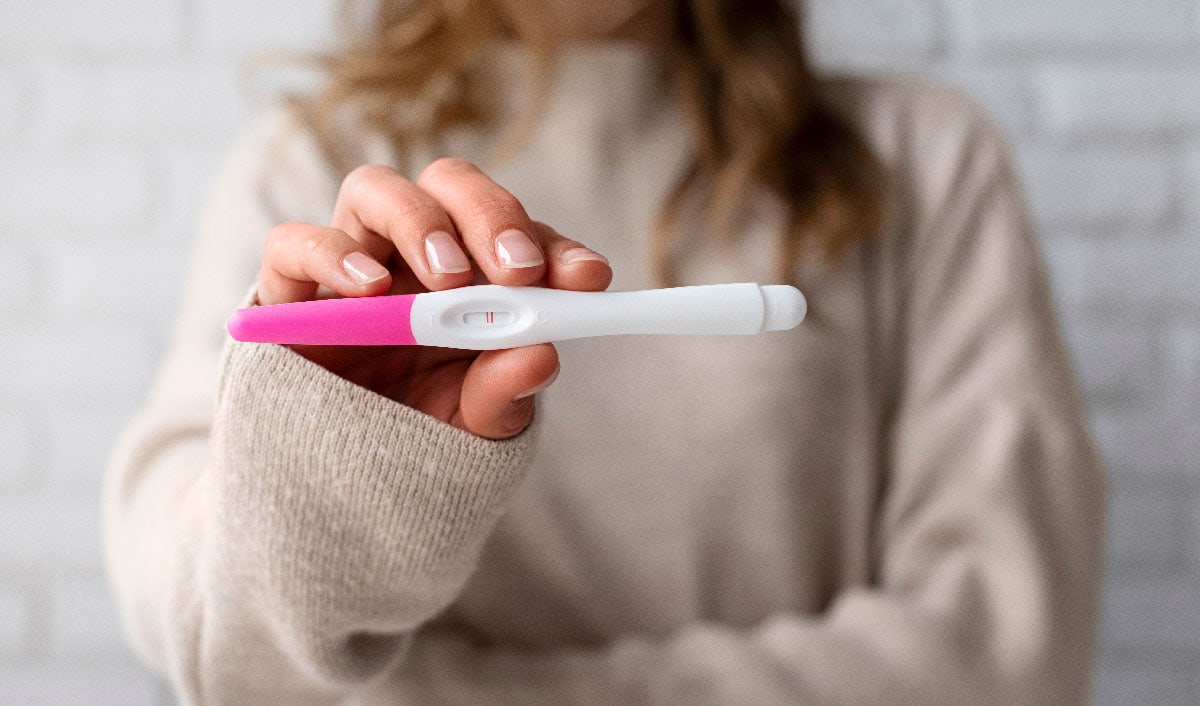Pregnancy symptoms differ from woman to woman and pregnancy to pregnancy; however, one of the most significant signs of pregnancy is a missed period. The surest way to know you’re pregnant is to take a pregnancy test.
What are the Most Common Early Signs of Pregnancy?
- Missed period. If you’re in your childbearing years and a week or more has passed without the start of an expected menstrual cycle, you might be pregnant. However, this symptom can be misleading if you have an irregular menstrual cycle.
- Tender, swollen breasts. Early in pregnancy hormonal changes might make your breasts sensitive and sore. The discomfort will likely decrease after a few weeks as your body adjusts to hormonal changes.
- Nausea with or without vomiting. Morning sickness, which can strike at any time of the day or night, often begins one month after you become pregnant. However, some women feel nausea earlier and some never experience it. While the cause of nausea during pregnancy isn’t clear, pregnancy hormones likely play a role.
- Increased urination. You might find yourself urinating more often than usual. The amount of blood in your body increases during pregnancy, causing your kidneys to process extra fluid that ends up in your bladder.
- Fatigue. Fatigue also ranks high among early symptoms of pregnancy. During early pregnancy, levels of the hormone progesterone soar — which might make you feel sleepy.
When Do Pregnancy Symptoms Start?
You may experience pregnancy symptoms within a week of conception. Some women report that they did not experience any symptoms for a few weeks. Click here if you need a free test or ultrasound.
Other pregnancy signs and symptoms during the first trimester may include:
- Mood Swings. Expecting mothers frequently experience mood swings. This is primarily caused by the hormonal changes that affect the neurotransmitters of the brain. Some may experience elevated highs and lows, and others alternate between states of happiness and depression or anxiety. Mood swings are normal; but, if you’re struggling with depression or extended periods of sadness, please contact your healthcare provider. Some women prefer to go directly to a counselor or mental health professional.
- Backaches. Lower backaches are common. It can occur with the onset of pregnancy, but it’s usually experienced later as the pregnancy progresses, around pregnancy week 27 to week 34.
- Headaches. Experts believe the sudden rise of hormones and/or blood flow in your body leads can cause headaches. There is an approximate 50% increase in the volume of blood flowing during your pregnancy.
- Food cravings or food aversions. The food expecting women crave or seek to avoid varies and is quite sporadic. It is alright to allow yourself the freedom to pursue those cravings and avoid the things you don’t want as long as you are getting the nutrition you need for a healthy pregnancy. These cravings or aversions can occur early in pregnancy or anytime throughout your pregnancy.
- Darkening of the Areolas. It’s normal if the areolas, area around your nipples will darken.
- Bloating. Hormonal changes during early pregnancy can cause you to feel bloated, similar to how you might feel at the start of a menstrual period.
- Light spotting. Sometimes a small amount of light spotting is one of the first signs of pregnancy. Known as implantation bleeding, it happens when the fertilized egg attaches to the lining of the uterus — about 10 to 14 days after conception. Implantation bleeding occurs around the time of a menstrual period. However, not all women have it.
What Else Could It Be?
A missed or delayed period, the most commonly reported first sign of pregnancy, could be caused by:
- Pending menstruation
- Excessive weight gain or loss
- Fatigue or exhaustion
- New workout regimen
- Hormonal imbalance
- Tension or stress
- Change in birth control usage
- Various illnesses
- Breastfeeding
Nausea or morning sickness, the second most frequently cited symptom of pregnancy, might be explained by:
- Food poisoning
- Tension or stress
- Anxiety
- Change in hormonal birth control
- Other stomach ailments
Tender or changing breasts, the third most noted pregnancy symptom, might be triggered by:
- Hormonal imbalance
- Change in hormonal birth control
- Impending menstruation
Fatigue or tiredness can be brought on by:
- Tension or stress
- Exhaustion from working too hard
- Depression or other mental health struggles
- Common cold or flu
- New workout regimen
- Allergies or other ailments
- Lack of sleep
- Improper nutrition
- Pending menstruation
What Do I Do Next?
If you would like to speak to someone about your pregnancy symptoms or the possibility of being pregnant, click the chat button below or call us toll free at 1-800-672-2296.
- If you need a free pregnancy test or ultrasound you can use your zip code to find a free pregnancy testing center.
- If you are trying to get pregnant and need help, check out our new e-book, The Ultimate Fertility Resource Guide.
- Questions about paternity? Call for free paternity info at 1-800-798-0580.







